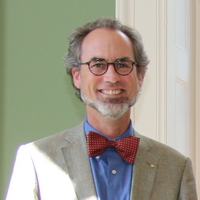Interview with David B Haviland
Interview with David B Haviland (Applied Physics) regarding his assignment as Chair of the Nobel Committee for Physics at The Royal Swedish Academy of Sciences

What does being Chairman of the Nobel Committee for Physics entail?
The Chairman leads the meetings and helps to guide the committee to concensus in their recomendation for a prize. The committee chair also presents the work of the committee to the Physics Class of the Academy, and to the whole Academy in their plenary session. The chair is a rotating appointment, typically year-by-year. Committee membership is a three-year appointment, with maximum 3 appointments. There are also single-year appointments to the committee, but it is rare that someone would serve more than 9 years total.
Can you explain this year’s Prize?
This year the prize was for the discovery of Black Holes. Half the prize was for theory. Roger Penrose developed a scenario describing how black holes could form in a process of gravitational collapse, which was consistent with the General Theory of Relativity and robust against perturbations or asymmetry in the initial mass distribution. His theory gave confidence that Black Holes really might exist, that their formation was possible in a natural process.
The other half of the prize was for the experimental observation of a Super Massive Black Hole in the center of the Milky Way Galaxy. Andrea Gehz and Reihnard Genzel each led two different research groups that made observations of stars orbiting the center of our Galaxy. They made observations over many years, at infrared wavelengths, constantly improving the accuracy of their measurements. They were able to map the orbits of several stars around the galactic center, the closest having an orbital period of only 16 years. From this data they could infer the presence of a non-visible, very compact and massive object, with a gravitational pull corresponding to 4x10^6 solar masses. Such Super Massive Black Holes are now understood to exist in the center of many galaxies.
How are the Prize winners selected?
Every year the committee sends out about 3500 letters of invitation to nominate. There are 6 different lists for invitations, including people who have previously done evaluations for the committee and people recommended by members of the Physics Class of the Academy. The largest list rotates with a three-year cycle, to physics department heads of major universities all over the world, where we solicit nominations from prominent members of their faculty. Other lists contain all nordic professors of physics, members of the Nobel Committees, and members of the Physics Class in the academy.
The deadline for receiving a nomination is Jan 31. We get about 500-550 nominations in a typical year. The committee does the work of reviewing them and grouping them in to areas where we seek expert advice from external people. Every year we may request between 20-30 expert evolutions, which range from an overview of a particular area of physics, to comments and opinions about specific nominations.
The Nobel committee makes a prize recommendation to the Acadamy. The Physics Class of the Academy makes a statement to the Academy about the committee’s recommendation, and they can in principle disagree with the committee and make an alternative recommendation. The committees suggestion is presented to the whole Academy in a plenary session, and in principle someone from the Acadamy could propose and alternative suggestion. The final decision is made by a vote in a plenary session of the Academy, just prior to the announcement of the prize winner.
Why is the selection process shrouded in such secrecy?
There is a lot of prestige around the Nobel Prize. It is important that people can freely express their opinions and points of view, without fear of repercussion. All nominations, external written evaluations and the committee's yearly written analysis is archived. The archive is an important resource in making a case for a prize. The archive is open for historical analysis after 50 years, or until all people involved are no longer living.
KTH professor Hannes Alfvén was awarded the Nobel Prize in Physics 50 years ago. When do you think a KTH researcher will next be awarded the Prize?!
I have no idea. If KTH supports their faculty to do high quality, creative and innovative basic research, then hopefully KTH faculty will make the kind of discoveries and inventions that will someday get another Nobel Prize!
Do you have a favourite Nobel Prize Laureate?
Sorry, I don’t want to play favorites.
